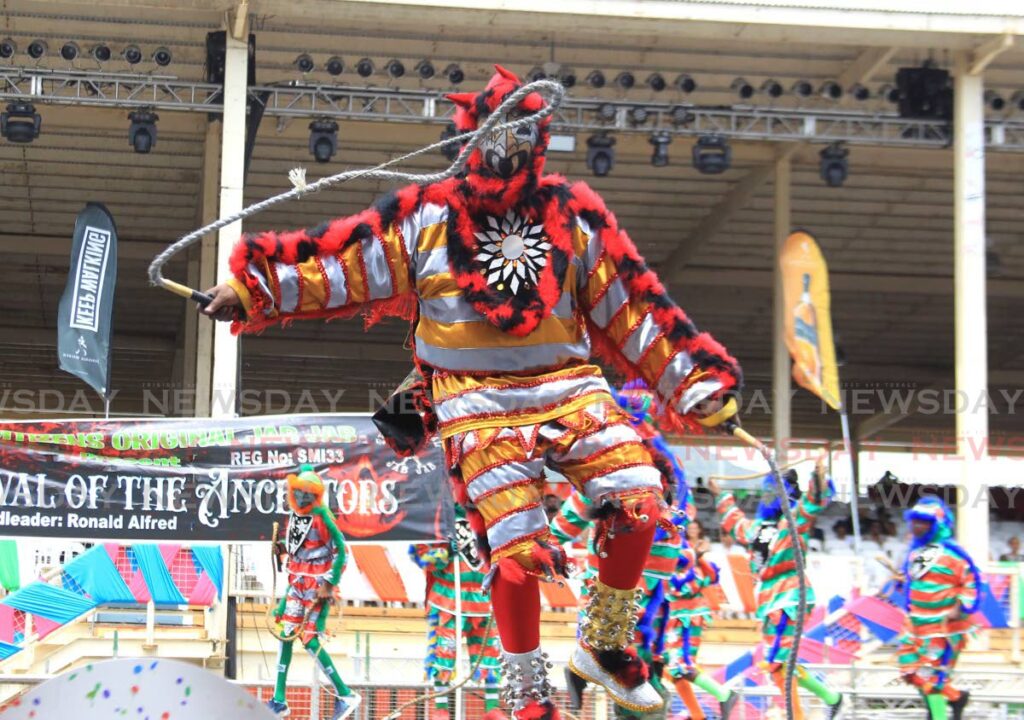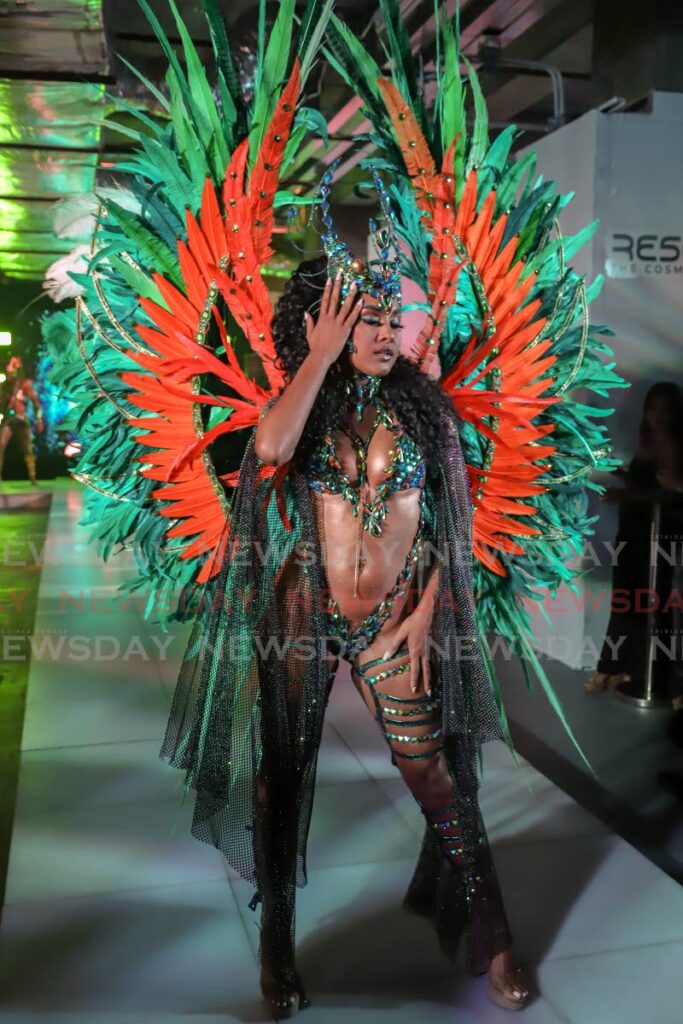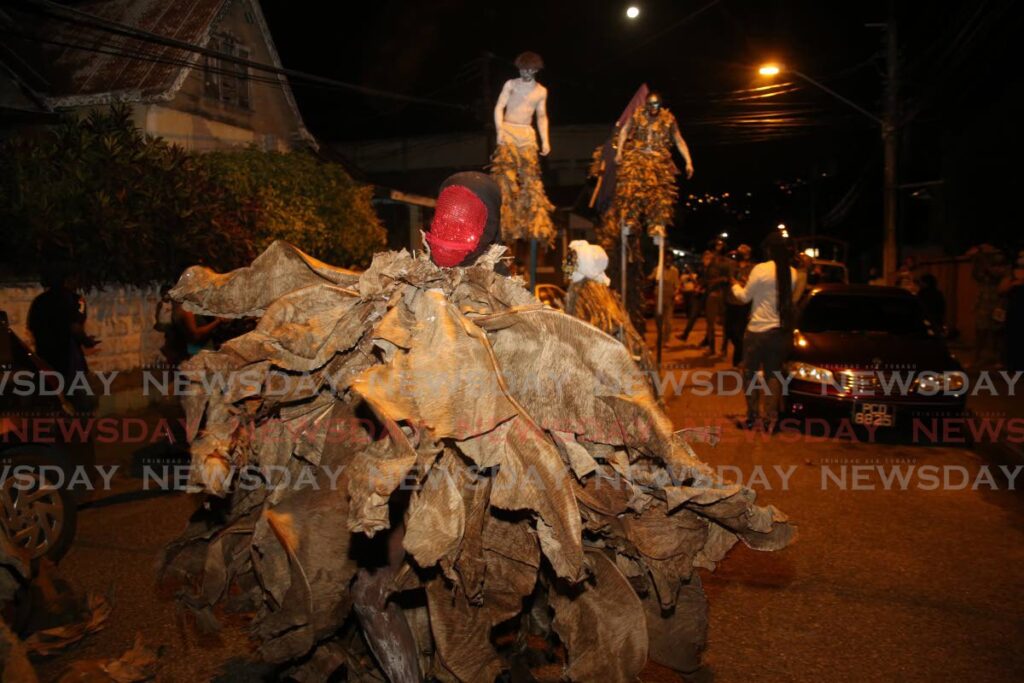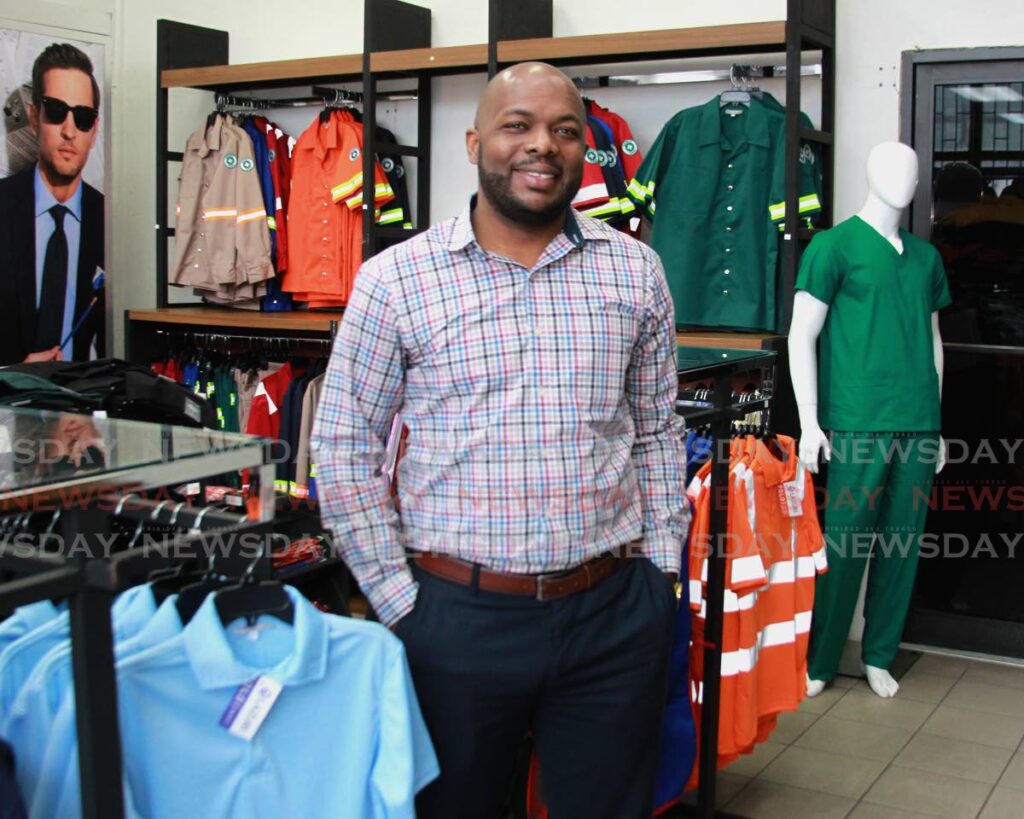Stakeholders: Trinidad and Tobago should be number-one Carnival exporter

At least 50 per cent of the construction of Carnival costumes can happen in TT, say some stakeholders.
Incentives, training, and suitable spaces are said to be three factors which could help return the art form to the shores where it originated.
On March 1, Trade and Industry Minister Paula Gopee-Scoon said she would be advocating for a local-content policy on manufacturing and producing Carnival costumes. She said TT had the capacity to produce them, though some components would still have to be imported.
For Carnival 2023, some large bands were unable to source the volumes of costume pieces needed in time, as they had ordered them from China and Pakistan, and shipping issues caused delays.

Freelance feather designer Aaron Schneider said he only uses local tailors and seamstresses for his work with the band Resonate.
“Buying sewn stuff from China has proven to be quite the ‘cat in bag’ experience for me.
"The cost is a little higher here in TT, but the availability and access more than makes up for that. Furthermore, Carnival costumes are not cheap at the retail level, and thus these costs are readily absorbed.
"We can’t get away from ordering from China, as almost 95 per cent of the materials provided come from there."
But, he said, building, designing and constructing finished pieces "should be happening here.
"Why aren’t we setting up factories that are educating kids out of school with this as an option? There are thousands of kids every year misplaced and looking for a sense of direction. The ability to harness a creative energy like that and put it to work would be priceless in two or three generations down the road.
"We should be the number-one exporter of the Carnival product.”

Schneider said the local-content policy was more than feasible, but "should definitely be helped along, by the way of incentives to lubricate the local manufacturing machinery."
He called for subsidies for small business operators and easing import restrictions on the main materials used in processes from design to production.
“I’ve been saying for years, it is the responsibility of the government to utilise the most available natural resources.
"We have harnessed oil, we must harness the massive force that is local creativity and allow it to stand head and shoulders along the local economic giants. Set up these factories and get to work, create the spaces and allocate accordingly so that the local Carnival practitioners can function again and maybe even thrive.
He said China is exporting "thousands if not millions of costume units annually – that is madness."
Schneider said there was also an environmental component to keeping Carnival production in TT, in that as well as exporting thousands of jobs every year, the country then paid "exorbitant shipping costs" to fly costumes here.
"Not only is it better for the planet that we start producing more locally, it is an untapped industry, with the sky being the only limit on its economic potential.
"The challenges that we face is cost point and efficiency. Both of these can be tackled and creatively addressed – there is nothing that should be stopping us."
He asked, "Is it that China is the home of Carnival and we just renting a space? It needs to change.”
Lazuri Apparel CEO Roger Roach said he fully supported the minister’s announcement, and more needed to be done to ensure costumes are produced locally.

“This is how it used to be. Peter Minshall, (Brian) Mac Farlane – all those things were made locally.
"This phenomenon of exporting our production to China and Pakistan and the Far East is a new phenomenon."He wanted to reverse at least 50 per cent of it.
"We’ll have to import some of the inputs, because we don’t make artificial feathers, beads, gemstones, wire and all those things.
"But certainly in terms of making the base costumes, the flags, putting together the backpacks and so on, those things can and should be done locally. There are enough creative people in TT that can put these backpacks together.”
Roach said there are many people sewing Carnival costumes, but more organisation was needed.
“I even suggest that the government-owned facility at UTT on Wrightson Road be converted into a Carnival production facility. Instead of them making a little bit of clothes for this person and that person, the little pockets of designed clothing, if it could be organised into a factory-production-type unit, it would better serve.
"That would be my suggestion, to convert it into a fit-for-purpose Carnival production facility.”
Caribbean Yard Campus co-ordinator Rawle Gibbons said he thought the government and the minister’s response was long overdue.
The Caribbean Yard Campus teaches a year-long course in mas design and construction. He said there were multiple aspects of Carnival production which could be done in TT.
“The Carnival industry has really been left on its own to struggle, it’s really been continuing through the initiatives of various entrepreneurs and that has really fallen apart more or less. The minister’s statement was in response to an initiative taken by the private sector to build sewing skills, and the number of people who attended showed the need, but this should be taken right through the production line for Carnival.
"We used to have specialist people who produced Carnival boots, and of course in terms of costumes, and now that Carnival is all over the world, it means we can become the production centre of this activity, and I think it’s a missed opportunity."
He said in the past all costume components were local. "We weren’t manufacturing artificial feathers, but people used to get corbeaux feathers and such for their masks. There is a level of mas that’s entirely local.
"Then when it comes to the bigger bands there is a size issue that comes in and they import stuff and so on. But we haven’t exercised our own imagination in terms of how we can produce the things we want to produce locally.”
Gibbons said governments in TT tend to talk about conditions here as though they weren’t in a position to bring a change to the situation.
“They need to set the policy and set the direction for what change has got to happen.”
Robert Young, creative designer and bandleader of the mas band Vulgar Fraction, said Carnival began and continues as an act of rebellion, and making tools of rebellion should remain in local hands.
“Making Carnival is an indigenous way of rebellion, no matter what it is, if it’s the way (the 1970s armed revolutionary guerrilla group, the theme of his band this year) NUFF does it, or if it’s a rebellion that says, 'This is my body, I want to use it like this, and I want to show it like this.' It benefits people in some way, and the making of those tools of rebellion should be in our hands, and not given to people who, because of unemployment, have to work for minimum wage, and give one or two people massive profits.
“The result of that was what happened this year. And for the minister to now know that it is a problem, they’re not really looking at the situation, because they’re only looking at the sexiness of it – not the sexiness of the mas, the sexiness of the solution, because it elegantly comes out of a box.”
He expressed reservations about whether bandleaders, especially of the larger bands, would want to make costumes in TT. Anti-monopoly legislation should be put in place, he said, so no one is able to absorb all the smaller bands and control price points.
“Making the costumes here would interfere with the efficiency of it being packaged, with the commodifying of it, the financialisation of it, it will interfere with the profitability of it, if it’s made locally. If it’s made in bulk quantities, you get into tens and 20s of dollars alone, and a unit will cost $9,000.”
He advocated for a return to people making their own costumes in mas camps, as Vulgar Fraction does.
“There’s a power in making traditional mas, there’s a power in making the mas that I do, there’s a power in people like Patrick Roberts, where people make the costumes here.
But he said people who play in a band "that is packaged as a product, a commodity, as an experience" would not play in bands like that: "It’s too personal, it’s too tactile, it’s too indigenous for them to consume it."
Making mas locally, he argued, would also mean that: "An indigenous craft form is kept in our hands, that people get to transform their thoughts into bending wire, sticking things, and there is a beauty and a power in creating things that amplifies itself in many different ways in our lives...I could start a business, I could take charge of my life, I’m powerful, I am creative, I am significant."
Without this creativity, he said, if "we have to work in a KFC or work in a bank, selling money, we then become consumers and we lose that connection of making, of doing.”
Young said the knowledge of making things was already being lost by younger generations.
“The power of making does many things that the powers that be don’t want to happen, because why should people be able to know that they could make things? Imagine if we continue this way, what will happen in another 20 years: another generation doesn’t even know that things can be made. It is already so.”


Comments
"Stakeholders: Trinidad and Tobago should be number-one Carnival exporter"